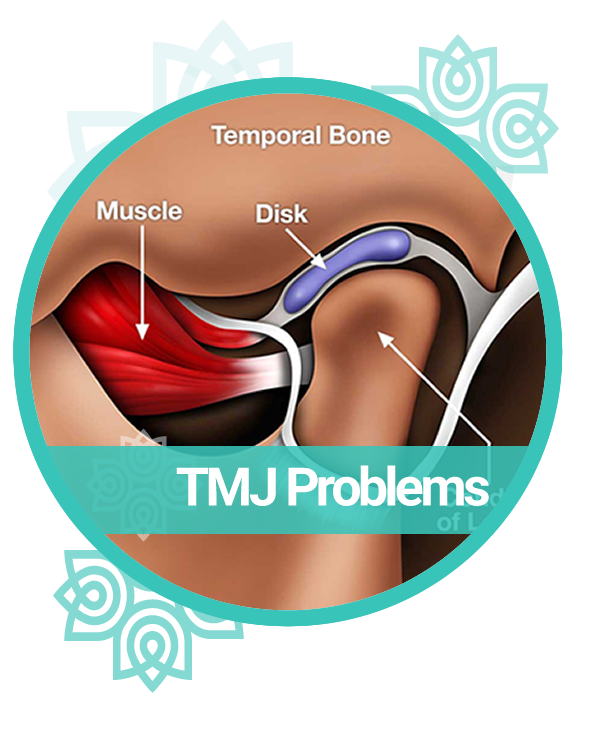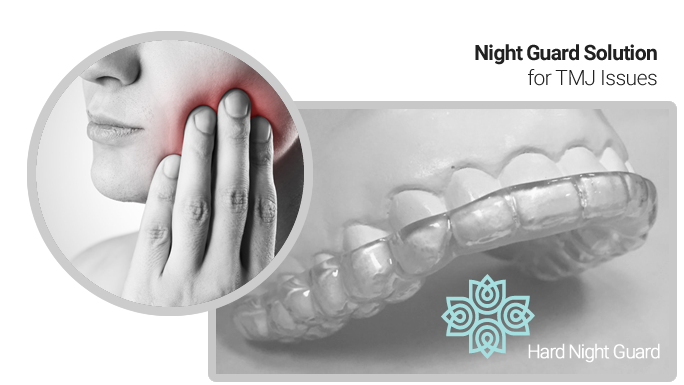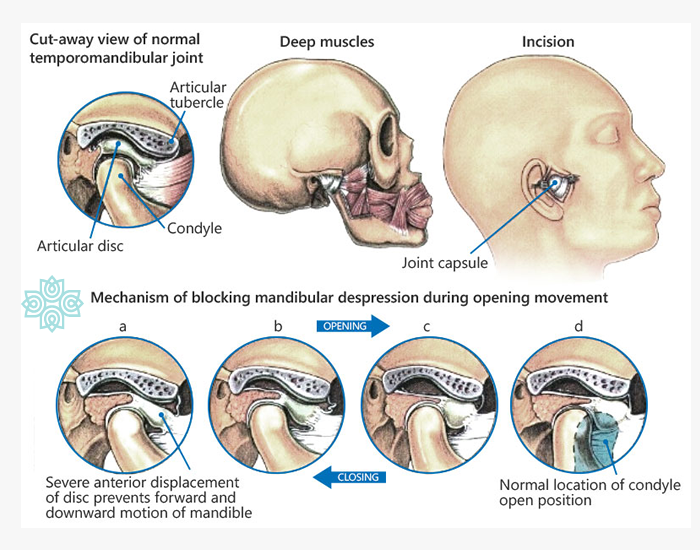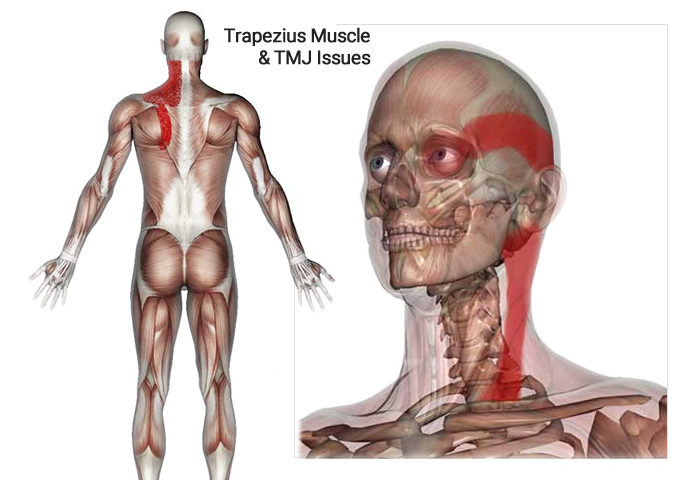
PROBLEMS WITH YOUR JAW AND THE MUSCLES IN YOUR FACE THAT CONTROL IT ARE KNOWN AS TEMPOROMANDIBULAR DISORDERS (TMD).
Injury to your jaw, the joint, or the muscles of your head and neck — like from a heavy blow or whiplash — can lead to TMD. Head Pain, Headache Problems, Facial Pain are common symptoms:
- Severe headaches
- Forehead pain
- Severe, one sided headaches (like Cluster headaches, Headaches that feel like sinus infections.
TMD SYMPTOMS
| Jaw and Jaw Joint Problems | |
|---|---|
| Limited jaw opening | |
| Inability to open the jaw smoothly or evenly | |
| Jaw moves to one side when opening. | |
| Unable to find natural way to rest teeth when mouth is closed | |
| Clicking or popping jaw joints with Muscle spasms around jaw joints |
STAGES OF TMJ PROBLEMS
In people with TMD, it has been shown that the lower head of lateral pterygoid contracts during mouth closing (when it should relax), and is often tender to palpation. To theorize upon this observation, some have suggested that due to a tear in the back of the joint capsule, the articular disc may be displaced forwards (anterior disc displacement), stopping the upper head of lateral pterygoid from acting to stabilize the disc as it would do normally. As a biologic compensatory mechanism, the lower head tries to fill this role, hence the abnormal muscle activity during mouth closure. There is some evidence that anterior disc displacement is present in proportion of TMD cases. Anterior disc displacement with reduction refers to abnormal forward movement of the disc during opening which reduces upon closing. Anterior disc displacement without reduction refers to an abnormal forward, bunched-up position of the articular disc which does not reduce. In this latter scenario, the disc is not intermediary between the condyle and the articular fossa as it should be, and hence the articular surfaces of the bones themselves are exposed to a greater degree of wear (which may predispose to osteoarthritis in later life).
TMJ PROBLEMS AND SHOULDER ACHE
Temporomandibular joint (TMJ) issues can indirectly affect shoulder aches through a complex network of muscles, nerves, and postural changes. While the direct connection between TMJ problems and shoulder pain is not always straightforward, several mechanisms can explain how TMJ issues may contribute to or exacerbate shoulder aches:
- Muscle Overuse and Tension: TMJ disorders often involve clenching of the jaw and grinding of teeth (bruxism). These actions can lead to overuse and tension in the muscles of the jaw, face, and neck. The interconnectedness of the musculoskeletal system means that muscle tension in the neck and jaw can extend down into the shoulder region, causing discomfort or pain.
- Muscle Referral Pain: Pain from the TMJ area can radiate to other parts of the body, including the shoulders. This is known as referred pain. Trigger points or muscle knots in the jaw, neck, or upper back can refer pain to the shoulder area, leading to aches or discomfort.
- Postural Changes: Chronic TMJ issues can alter a person’s posture. When individuals experience jaw pain or discomfort, they may unconsciously change their head and neck position, which can result in poor posture. This altered posture can then lead to strain on the muscles supporting the shoulders and upper back, contributing to shoulder aches.
- Nervous System Sensitization: Prolonged pain from TMJ problems can sensitize the nervous system. This heightened sensitivity can make the body more susceptible to pain signals from various areas, including the shoulders. Thus, individuals with TMJ issues may be more prone to experiencing shoulder aches.
- Stress and Anxiety: Stress is a common factor in both TMJ disorders and shoulder pain. Stress can exacerbate jaw clenching and muscle tension, leading to worsened TMJ symptoms. Simultaneously, it can contribute to tension and discomfort in the shoulder area, as stress often results in muscle tightness.
- Compensatory Movements: To minimize pain or discomfort in the jaw, individuals with TMJ problems may adopt compensatory movements in the neck and shoulders. These compensatory movements can place additional stress on the shoulder muscles, potentially leading to aches and discomfort.
It’s important to note that not everyone with TMJ issues will experience shoulder aches, and the relationship can vary from person to person. The complexity of these interactions underscores the importance of seeking comprehensive evaluation and treatment from healthcare professionals when experiencing both TMJ symptoms and shoulder pain.















